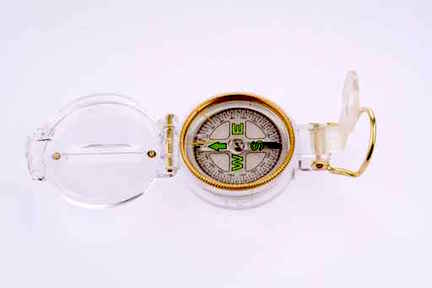Believing things between the sexes have gotten tense, Esquire magazine explores the state of men and women today in April’s issue. While I can’t say I understand any better what’s going on now that I’ve read the essays, I was particularly drawn to Jen Doll’s essay, The Burden of Choice: What it Means to Be a Modern American Female.  I guess because I, too, am a modern American female, albeit two decades beyond her version (but, hey, let’s not quibble about such things, shall we?). Here’s what she says:
I guess because I, too, am a modern American female, albeit two decades beyond her version (but, hey, let’s not quibble about such things, shall we?). Here’s what she says:
I am a particular kind of woman in America: healthy, white, single, heterosexual, childless, and at thirty-nine, still relatively young (though some may disagree). I feel pretty okay. I’ve been lucky. I have options.
Luck and options asides — Education, check. Career, check. Friends, check — the choices that have been available to her are making a mess of her life. Or, rather, they are forcing her to accept living with mess. And among the messes she’s questioning is, what about marriage? What about motherhood?
“I find I’m always wanting more—including some of what I’d scoffed at as a teen as “unoriginal”: the white dress, the traditional trappings of adult life. … I admire my friends who are freezing their eggs but tell myself, for me, if it’s not to be, it’s not to be, at the same time that I wonder, if I never actively choose to be a mom, have I given up something that I will always regret? (To be a woman now in America is to do battle with some sort of baby panic or another, particularly as you head into your later thirties.)”
Baby panic and “always wanting more.” Just a few decades ago, this was not even a concern for women — it was a duty.
I’ll admit, choice is scary, and having a panoply of choices often doesn’t get us what we want, as Barry Schwartz wrote in The Paradox of Choice: Why More Is Less more than a decade ago but still rings true.
But, it was a lot scarier when we had no choices, when women were limited in their educational and career choices; when they had to marry to survive (and then could be legally beaten and raped by their husbands); when being child-free wasn’t a choice but something to be pitied; when men had to be the provider as Barbara Ehrenreich details so beautifully in The Hearts of Men: American Dreams and the Flight from Commitment, creating a bondage of breadwinning that set them up for unhealthy lifestyles, including depression and suicide. And people in unhappy or abusive marriages couldn’t easily divorce, either, until no-fault divorce came along.
Now, all of us finally have choices; we can have sex, kids, a live-in partner and financial security (huge for women) without marrying. We get to choose our career and lifestyle. We can be single, partnered and living together, partnered and living apart, a single parent, single moms alloparenting in shared housing — the list goes on and on.
So, of course that makes us anxious, and makes life messy. How do we create a meaningful life? How do we know how to bring another person into the fold? Why marry when we no longer have to?
That, of course, is the premise of The New I Do: Reshaping Marriage for Skeptics, Realists and Rebels, but when I read Doll’s essay, I realize that the same consciousness that we promote in the book in deciding whether to marry or not, and how to have the right marriage, can be applied to deciding just about anything. Given that we can’t have everything, what do we actually want? Because our desires change as we age, we need to think short- and long-term. And, let’s be real — just because we have choice doesn’t mean we can always control the outcome. More often than not, we can’t.
Bring on the mess.
As I mentioned above, I, too, am a modern American female — a middle-aged divorced modern white American female. And that has made all sorts of things easier and harder at the same time. Which means I have adjusted my expectations while also being more discriminating. Here’s what drives me: connection. Friends, family, my partner. The rest is icing.
I doubt we’ll go back to a time when we’ll have fewer choices (and I’d be really, really worried if we preferred that). And while Doll talks about the complications of being a modern American female, she fails to consider that she’s a privileged white American female; being poor, white or not, undoubtedly limits many of the choices she’s struggling with.
Choice can be paralyzing, but it also can be liberating. How do you see it?
Interested in learning about ways to re-create your marriage? Read The New I Do: Reshaping Marriage for Skeptics, Realists and Rebels (Seal Press, September 2014). Order the book on Amazon, follow us on Twitter, like us on Facebook.
(polls)
















